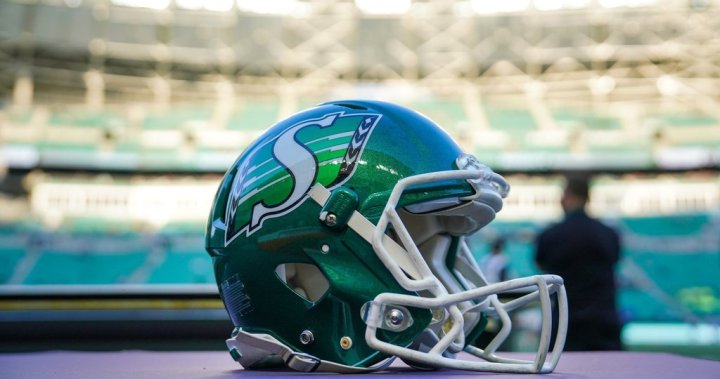The haze hanging over McMahon Stadium yesterday wasn’t just from pre-game excitement. For the first time in recent memory, the Calgary Stampeders and Saskatchewan Roughriders found themselves in a holding pattern due to something entirely out of their control – wildfire smoke.
Standing on the sidelines three hours before kickoff, you could taste it in the air. That familiar acrid flavor that’s become an unwelcome seasonal visitor to our city. The Air Quality Health Index had climbed to 8 – firmly in the “high risk” category – prompting CFL officials to delay the game by nearly two hours.
“Player safety comes first, always,” Stampeders head coach Dave Dickenson told me as players milled about the locker room during the unexpected downtime. “We’ve prepared for this game all week, but you can’t prepare for air that’s unsafe to breathe.”
The wildfire smoke, drifting in from blazes in northern Alberta and British Columbia, created a surreal atmosphere at McMahon. The stadium lights cut through the haze like headlights in dense fog, and the mountains – normally visible from the west stands – had completely disappeared from view.
For season ticket holder Margaret Wilson, who hasn’t missed a home game in 22 years, the delay brought mixed emotions. “I’ve sat through blizzards and thunderstorms to watch my Stamps,” she said, adjusting her red and white scarf pulled up over her nose. “But this smoke, it’s different. You can’t escape it.”
City of Calgary emergency management officials have noted a 30% increase in respiratory-related emergency calls during recent smoke events. The decision to delay the game aligned with health guidelines that recommend limiting outdoor activities when air quality deteriorates beyond certain thresholds.
“We’re seeing these events with increasing frequency,” explained Dr. Alan Richardson, a respiratory specialist at the University of Calgary. “The combination of physical exertion and poor air quality can create significant health risks, especially for athletes pushing their cardiovascular systems to the limit.”
When the game finally kicked off at 9:15 p.m., the stands were noticeably thinner. Many fans with respiratory conditions had opted to head home, following public health recommendations. Those who stayed witnessed a somewhat sluggish contest that the Stampeders ultimately lost 24-17.
Quarterback Jake Maier acknowledged the unusual circumstances may have affected play. “It’s not an excuse, but the delay disrupts your rhythm,” he explained post-game, voice slightly hoarse. “You warm up, cool down, warm up again. It’s challenging mentally as much as physically.”
This isn’t the first time Calgary sports have contended with smoke issues. In 2018, the Calgary Flames relocated training sessions during particularly severe wildfire seasons. However, yesterday marked the first official CFL game delay attributed specifically to air quality concerns.
Climate scientists from Environment Canada have predicted that Western Canada will likely face more frequent and intense wildfire seasons in coming years. For sports organizations like the Stampeders, this presents a growing logistical challenge.
“We’re developing new protocols specifically for air quality events,” confirmed Stampeders president John Hufnagel. “Just like we have plans for severe weather, we now need contingencies for smoke that consider everything from player health to fan experience.”
For longtime Calgarians, the increasing prevalence of smoke days represents an unwelcome shift in our city’s climate reality. The brilliant blue skies that typically frame McMahon Stadium have been increasingly obscured by a grayish-brown haze during summer months.
Local businesses around the stadium also felt the impact. Rita Sandhu, owner of Touchdown Sports Bar across from McMahon, described a chaotic evening. “We had a full house, then emptied out when the delay was announced, then filled up again, then partially emptied when some decided not to stay for the late kickoff. It was impossible to staff properly.”
The CFL’s decision ultimately prioritized health over schedule – a choice that most fans I spoke with supported despite the inconvenience. Season ticket holder Tom Briscoe summed up the sentiment of many: “I want to see bone-crushing hits on the field, not be struggling to breathe in the stands.”
As climate patterns continue to shift, yesterday’s delay might represent a new normal for outdoor events in our city. For a sports culture built around predictability and tradition, adapting to these environmental disruptions presents both practical and psychological challenges.
The Stampeders are scheduled to practice outdoors tomorrow, though team officials indicated they’re monitoring air quality forecasts and have indoor contingency plans ready. For a team already struggling this season, these environmental disruptions add another layer of complexity to their playoff push.
Walking through the parking lot after the game, the smell of smoke clung to clothing and hair – a sensory reminder of how our changing climate is infiltrating every aspect of life in Calgary, even our beloved football traditions.







